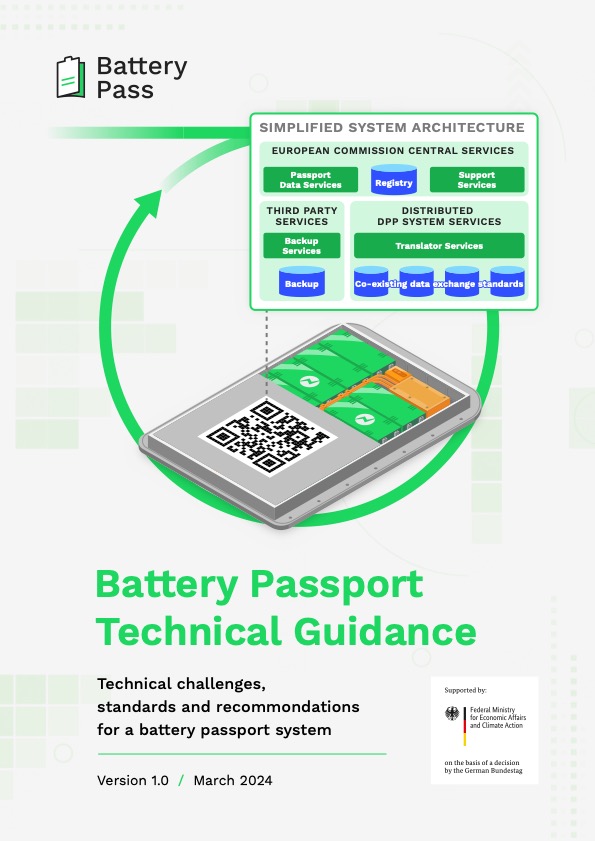[ad_1]
The first Technical Guidance and demonstrator for the EU Battery Passport has been published by a partnership including eleven prominent international industrial, technology, and research organizations. The guidance document, which has been jointly funded by the Battery Pass project and the German Federal Ministry for Economic Affairs and Climate Action (BMWK), offers a comprehensive framework and set of recommendations for the technical execution of the battery passport, which is required to be implemented by February 2027 under the EU Battery Regulation. The battery passport demonstrator has been utilized to validate and implement some technological approaches outlined in the standards, serving as illustrative examples.
The primary objective of the Technical Guidance and demonstration is to provide valuable insights and validation regarding the technical execution of a battery passport. This initiative seeks to enhance transparency and sustainability throughout the battery value chain by adopting a standardized methodology.
The document provides a comprehensive overview of the technical standards that are appropriate for supporting the development of a dependable and interoperable battery passport system. It is intended to assist various stakeholders in the battery ecosystem, such as economic operators, data providers, standard development organizations, and regulators. The outcome of this will be a reduction in both cost and time requirements for all stakeholders involved in the development and operation of the system along the full value chain.
The technological aspects of the battery passport, as described in the Guidance and shown, will be used as a prototype for the Digital Product Passport (DPP) and will have implications for other industries including textiles, electronics, and building materials in the future. The resources play a crucial role in facilitating the standardization procedures pertaining to the battery passport. This passport will become obligatory starting in February 2027 for all batteries used in light means of transportation, industrial batteries exceeding 2 kWh, and electric vehicle batteries that are introduced into the European Union market. By doing so, it guarantees adherence to the EU Batteries Regulation and the Ecodesign for Sustainable Products Regulation (ESPR).
The Technical Guidance is accompanied with a functional battery passport prototype, serving as a software demonstration. This prototype effectively illustrates the fundamental concept and features of a battery passport system, enabling technical feasibility testing. The platform incorporates authentic yet anonymized battery passport data, which is used to simulate the movement of data and transactions across the whole battery lifespan, encompassing the stages of raw material acquisition, recycling, and second-life utilization. The software demonstrator additionally demonstrates the practical implementation of both public and controlled access to the battery passport.
[ad_2]
Source link





